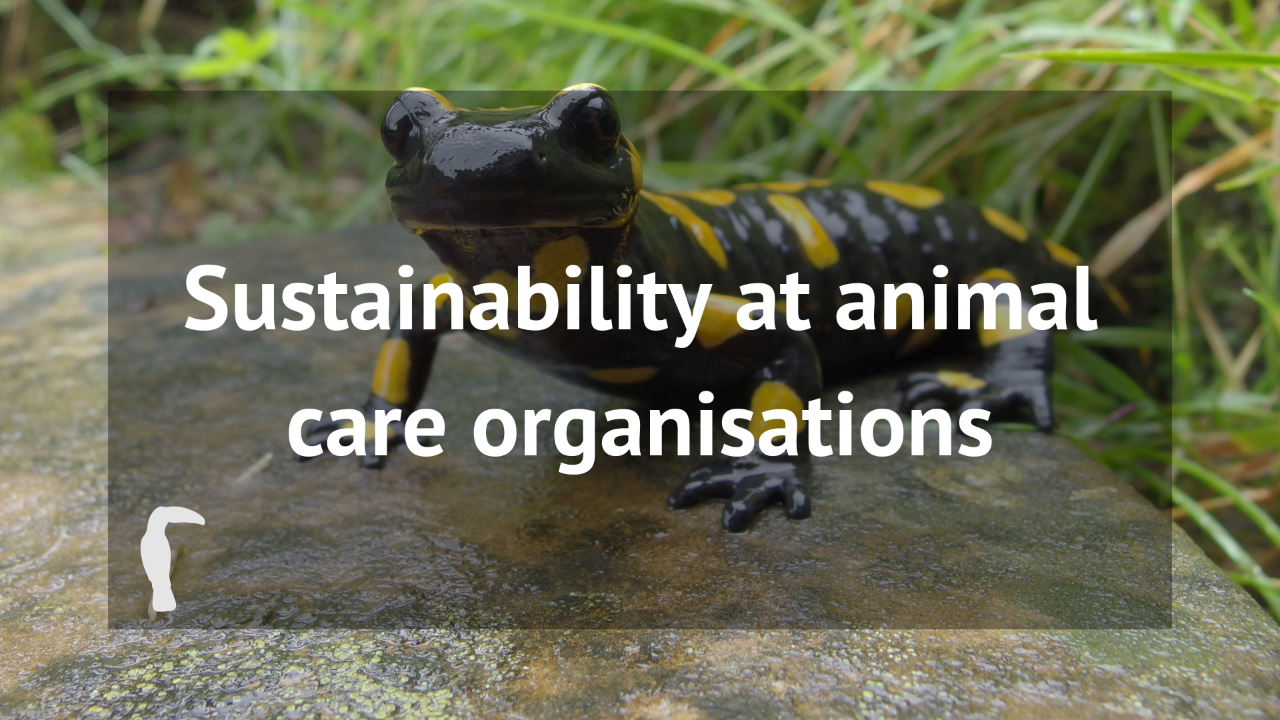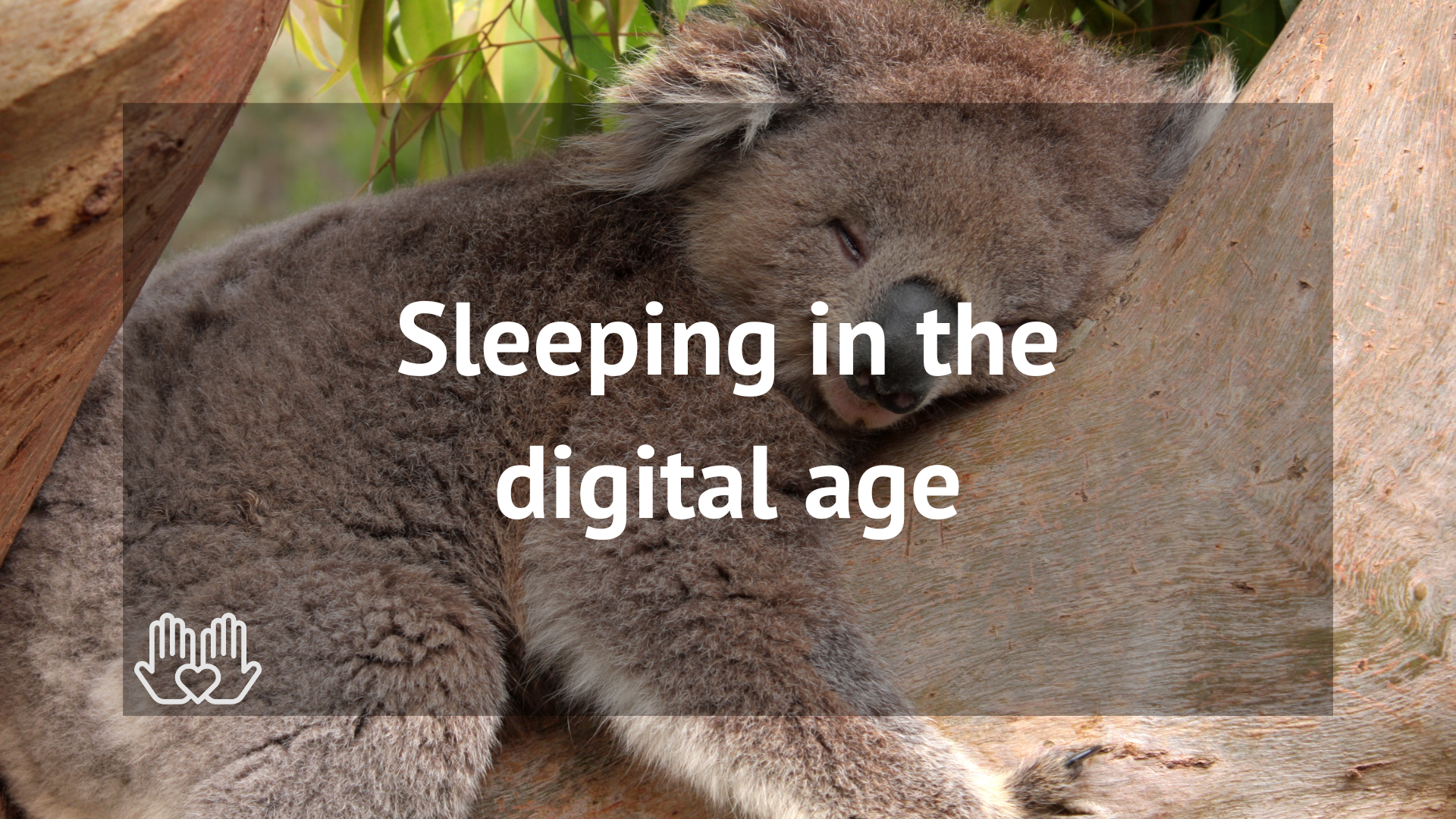Sustainable practices at animal care organisations & sleep in the digital age

Sustainable practices at animal care organisations
Sustainability is becoming an increasingly important topic in the management of zoos, aquaria, and other animal care organisations, recognising their responsibility to reduce their environmental impact and promote sustainable practices. Many organisations are involved in conservation, education and research, and sustainability is essential to the success of these efforts too. Visitors expect contemporary institutions to be leaders who promote sustainable practices and demonstrate their commitment to environmental preservation.
Animal care organisations play an important role in meeting the UN Sustainable Development Goals (SDGs). Annually, AZA-accredited zoos and aquariums provide information about their green business practices through AZA’s Green Practices survey. The database created from this survey serves as a tool for members to document their staffing, the sourcing of local food, registration of greenhouse gas emissions, and the acquisition of green certifications from third-party entities. Likewise, WAZA, EAZA and BIAZA offer guidelines for ethical and environmental policies, as well as strategies and working groups that support zoos and aquariums to help address SDGs, meet sustainable challenges and engage the public in environmental dialogue and debate. By adopting the SDGs framework, zoos and aquariums can decide and implement the best course of action, tailored to their context (political, economic, social, cultural and environmental situation).
From stopping selling plastic bottles to using renewable energies or building enclosures with reused materials, sustainable practices can be implemented at the institutional level, impacting different areas like animal habitats, visitor experiences or commercial strategy. We share some ideas and examples of practices that animal care institutions can do to reduce their negative impacts and carbon footprint:
- Energy efficiency: Implement energy-efficient lighting systems, utilise renewable energy sources (such as solar panels or wind turbines), and optimise heating, ventilation, and cooling systems. Have a look at the various practices that Paradise Wildlife Park is carrying out.
- Water conservation: Use efficient irrigation systems, collect rainwater for non-potable uses, and interior and exterior retrofits to buildings and equipment. Educating visitors about water conservation and responsible use is also a key function of zoos and aquariums. In 2010, Perth Zoo opened the environmentally-friendly ‘eco-toilet’, which uses very little energy and is offset by free power sources.
- Waste management: Zoos can implement recycling programs for paper, plastic, glass, and other materials, compost organic waste, and encourage visitors to engage in recycling and waste reduction activities. Organic waste can also be used to generate renewable energy. Marwell Zoo was the first wildlife park in the UK to generate renewable energy using animal waste (dung, soiled bedding and leftover hay). The zoo has officially achieved a carbon-neutral status.
- Sourcing: More zoos and aquariums are looking for environmentally friendly products, such as recycled or biodegradable materials, sustainable food options, and ethically produced goods. Some zoos also collaborate with local farmers and suppliers to promote sustainable agriculture and reduce the carbon footprint associated with transportation. High animal welfare standards need to be considered when sourcing food for animals, visitors and staff. Read more about this in a recent paper by the AnimalConcepts team.
- Sustainable design: Zoos can use sustainable or natural materials in their construction and maintenance projects, such as recycled plastics or wood from sustainable forestry practices. Old browse and fallen trees, for example, can be used for enrichment and enclosure design for other animals. Akron Zoo has many areas and habitats built with reclaimed materials.
- Public engagement and education: As seen in all the previous points, visitors are a critical component of our path to a more sustainable future. Engaging with schools, community groups, and the public to promote environmental stewardship and inspire action is one of the most important missions of modern animal care organisations.
Other initiatives and practices like offering plant-based food for visitors and staff, replacing vending machines for water refilling stations or removing single-use plastic products, contribute to reducing consumption, pollution and the carbon footprint on many levels.
In the heart of every organisation committed to improving the wellbeing of animals, people and the planet beats the promise of a brighter future – a future where human compassion and innovation unite to safeguard our planet's incredible biodiversity. Through constant commitment to sustainable practices, and to live simply so others can simply live, zoos and aquariums are not just windows into the natural world, but beacons of hope for a world where every action, no matter how small, can make a profound difference.
Do you have more ideas or know about successful examples of sustainable practices at zoos, aquariums or other animal care organisations? We would love to hear from you!

Sleep like a koala...stop scrolling!
Amid our demanding lifestyles, securing an adequate amount of sleep has become a fundamental aspect of overall wellbeing. In an era marked by bustling schedules and constant connectivity, the significance of getting enough sleep cannot be overstated. Sleep is not merely a luxury; it is an essential physiological process that revitalises our body and mind, preparing us to navigate challenges and take advantage of opportunities each day. During deep sleep stages, tissues are repaired, the immune system is strengthened, and the brain consolidates memories and processes emotions. Moreover, sleep plays a pivotal role in regulating hormonal balance, metabolism, and cardiovascular health. Adequate sleep is directly linked to improved cognitive function, enhanced concentration, and heightened problem-solving abilities. By prioritising sleep, individuals can lay the foundation for optimal physical and mental wellbeing. Conversely, chronic sleep deprivation has several negative impacts on our lives. Inadequate sleep impairs cognitive abilities, leading to decreased productivity and an increased likelihood of errors. It can negatively impact mood, exacerbating feelings of stress, anxiety, and irritability. Prolonged sleep deficiency is linked to a higher risk of chronic health conditions such as obesity, diabetes, and cardiovascular diseases. It impairs the body's immune response, making individuals more susceptible to infections. These consequences underscore the urgency of addressing sleep as a fundamental pillar of wellbeing.
In today's hyper-connected world, technology has transformed every facet of our lives, including our sleep patterns. While the digital era has bestowed countless conveniences and innovations, it has also introduced challenges to our sleep quality. The intricate interplay between technology and sleep demands a nuanced approach that acknowledges both the advantages and disadvantages. By finding a balance between embracing sleep-enhancing technologies and preserving our natural sleep cycles, we can facilitate the way for healthier, more restful and peaceful sleep experiences. Technology offers multiple opportunities to track and monitor our sleep patterns that can provide valuable insights into the quality and duration of sleep, helping individuals identify areas for improvement. For those struggling with falling asleep, technologies such as white noise apps, calming music playlists, and guided meditation apps can create a relaxing environment that promotes sleep. Technology has also developed smart mattresses and lighting systems that can replicate natural lighting cycles, helping regulate the body's circadian rhythm and promoting healthier sleep-wake cycles.
All these are examples of how technology can help us to achieve good quality sleep. However, our daily exposure to screens can make sleeping difficult. The blue light emitted by screens on smartphones, computers, and TVs can interfere with the body's production of melatonin, a hormone that regulates sleep. Excessive screen time before bed can lead to difficulties falling asleep. The constant connectivity offered by smartphones and other devices can lead to sleep disturbances, as notifications, emails, and messages can interrupt sleep if not managed properly. Moreover, engaging with stimulating content close to bedtime, such as action-packed movies or intense video games, can make it difficult for the mind to relax and transition into a restful state. The temptation to check social media, watch videos, or work on electronic devices late into the night can result in reduced wind-down time before sleep, preventing the body and mind from preparing adequately for rest. Here are some strategies that can help optimise our rest and wellbeing in the digital age:
- Establish tech-free zones: Designate certain areas of your living space as tech-free zones, especially the bedroom. Keeping devices out of the sleeping environment can help create a conducive atmosphere for sleep.
- Screen time limits: Set specific times to disconnect from screens before bedtime. Using "night mode" or blue light filters on devices in the evening can also help mitigate the impact of blue light on melatonin production.
- Create a bedtime routine: Establish a calming pre-sleep routine that involves activities like reading a physical book, practising relaxation techniques, or enjoying a warm, non-caffeinated beverage.
- Utilise sleep technologies mindfully: While sleep-tracking devices and apps can offer insights, avoid becoming overly fixated on the data they provide. Obsessing over sleep metrics can lead to unnecessary stress, which may ironically hinder sleep.
- Prioritise sleep hygiene: Focus on maintaining a consistent sleep schedule, creating a comfortable sleep environment, and engaging in regular physical activity to promote healthy sleep.
- Get morning exposure to sunlight: Getting exposure to sunlight in the morning can help you sleep at night because it helps reset your body's inner "sleep clock.
- Naps can help you sleep better at night: Studies show a 30-minute nap between 13:00 - 15:00 combined with moderate exercise, like a walk and stretching in the evening, helps improve nighttime sleep. Let's have a nap!


